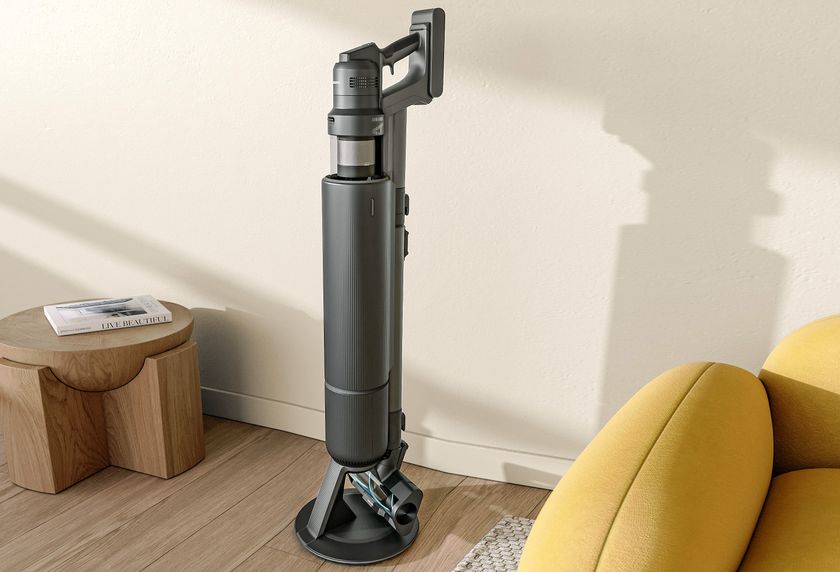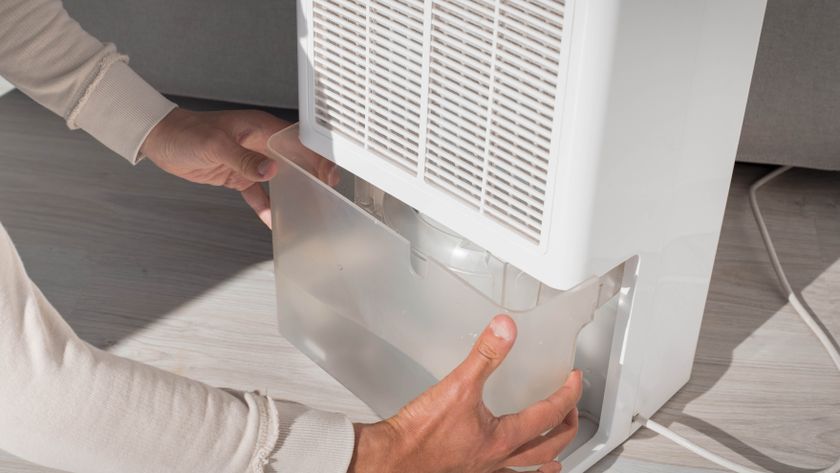7 things that make your home smell and how to fix them
How to remove household odors
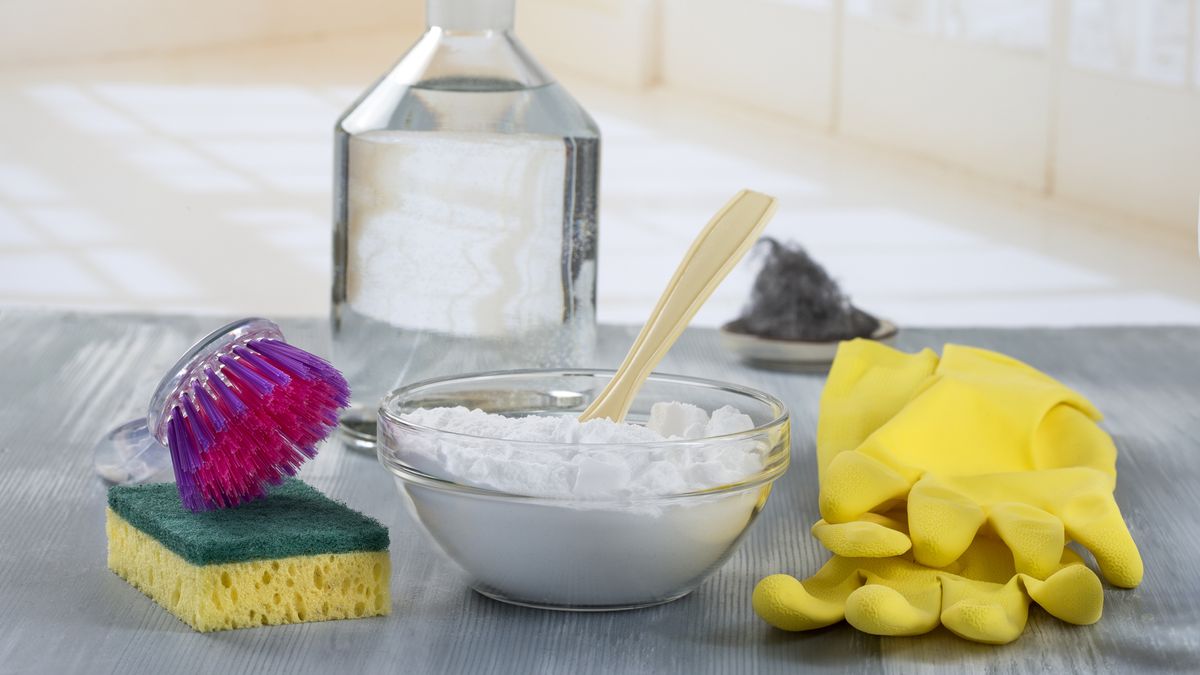
If your home is more foul than fresh, you may need to investigate what is causing the problem before you can tackle the root issue. Merely spraying your room with a fragrance will only disguise the smell for a short time rather than banish it completely.
While some odors are easy to sniff out and may be solved with a DIY remedy, others may need more investigative work and professional expertise to solve.
We’ve put together a list of 7 reasons why your house might be a bit stinky and what to do about it.
1. Clear the trash

It’s not too hard to tell when the trash is ready to go out. You’ll face an overloaded garbage bin or a stinky kitchen. Even if your bin isn’t overflowing, if it smells, it's time to put the trash out.
Garbage smells bad for a reason. The bad odor comes from the chemicals released as microbes decompose the food, or from the bacteria, mould or yeast that is produced.
One of the easiest methods is to trim your bin and get composting — separating out your organic waste. Removing fruit and vegetable peelings will reduce your waste and nourish your garden.
But it will also need cleaning. Spray the outside of the trash can with a multipurpose cleaner and wipe away the grime. Any greasy spots can be removed with dish soap. For ground in dirt, mix baking soda and water into a paste and scrub before removing with a damp cloth. For the inside, remove any food debris and scrub with a brush before wiping with a damp cloth. Then, spray with a disinfectant and leave for the recommended time before rinsing it out with water and leaving it to dry.
Sign up to get the BEST of Tom's Guide direct to your inbox.
Get instant access to breaking news, the hottest reviews, great deals and helpful tips.
To prevent smells from reoccurring, line the base of the trash can with an absorbent liner and sprinkle with baking soda — a natural deodorizer. Coffee grounds can also be added on top of the garbage to help neutralize the smell.
2. Remove the mold
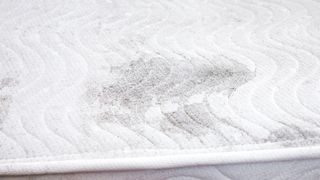
Mold has a distinct smell that can be described as musty, although you might need help to spot it as it has a habit of hiding in nooks and crannies. It also carries some health risks and can lead to allergy symptoms if left untreated, so it's important to find the source and clean it up.
Some areas of your house are more prone to mold, such as bathrooms and laundry rooms where there are high moisture levels. But there are other areas where it takes more work to spot. If your bedroom smells musty, but you can’t detect any black patches on your walls, check your mattress for mold.
There are many ways to prevent mold in your home, and according to the U.S. Environmental Protection Agency, the key is moisture control. Investing in one of the best dehumidifiers will help reduce the moisture level while keeping windows open will improve ventilation. There is also a wide choice of humidity-loving houseplants that will help prevent mold.
If you are struggling to get rid of the musty smell, try filling a container with some odor-absorbers, like baking soda, charcoal briquettes or cat litter. Although, perhaps avoid the cat litter if you have a pet as you could be encouraging another unpleasant smell!
3. Clean your drains
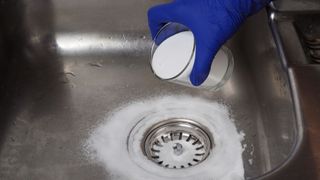
Stinky drains in the kitchen or bathroom are a common problem but won’t disappear without intervention. Food debris and other particles, which can cause bacteria to grow and lead to mold, are normally the root of the problem in the kitchen. While if you pour grease and oil down your kitchen drain it can congeal and cause a stench as it decomposes. In the bathroom, hair and soap scum are notorious for clogging drains and causing a bad smell.
A simple prevention is to use a sink stopper to catch debris before it goes into the pipes and to stop pouring fats and oils down your drains. But, if the damage has already been done, a drain snake will help to remove hair from pipes, and a sink plunger may be needed for more solid masses.
I find a drain snake, sometimes known as a drain weasel, works well in my bathroom. When the bath or shower water is slow to drain, I know the pipes are blocked and it's time to put the snake to work. (Here are some tips on how to unclog a drain without needing a plunger.)
Alternatively, your drains can be flushed out with a mix of baking soda, vinegar and hot water. Pour half a cup of baking soda down the drain, followed by one cup of distilled white vinegar mixed with one cup of hot water. Cover the drain with the plug and leave for 10 minutes. When the time has elapsed pour two cups of hot water down the drain to flush it through.
Garbage disposals can also cause bad odors in your home and must be cleaned regularly to prevent a stench from developing.
4. Air your dirty laundry
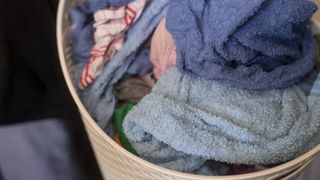
In a busy household, staying on top of the washing can be difficult. You’ve just got through a pile of laundry, you turn your back and the laundry basket overflows again. And it's only possible to avoid a bad smell from your clothes if your washing machine is on constant ‘go’.
Moisture is the culprit, making gym kits and damp clothes key offenders regarding the stench. When moisture interacts with existing bacteria, it produces a bad odor and can lead to mold or mildew growth.
So, how can you avoid your laundry basket smelling like a damp sports changing room? Unless you're going to put on a wash straight away, hang up damp towels or sportswear and let them dry out before chucking them in the laundry basket.
Investing in a laundry hamper that allows air to circulate will also help, especially if it has a cage-like base, allowing the base to breathe. Also, consider a material that can be sprayed with an antibacterial spray and wiped clean.
5. Spruce up your pets
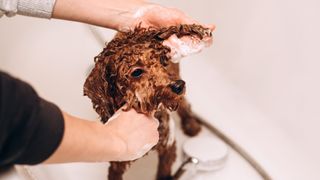
Despite the joy pets bring their owners, they can come with a few unwanted odors. Good pet hygiene is essential to reduce issues with smelly pets. Regular bathing and grooming will help to keep prized pets looking and smelling perky, and will stop dirt, odor and pet hair coming into contact with your soft furnishings.
However, if it does, baking soda can remove the odor. Sprinkle the surface with baking soda, leave it for 15 minutes, then vacuum it.
Cat litter trays are a particular problem regarding hygiene and bad odors. The American Animal Hospital Association suggests litter boxes should be scooped daily and cleaned regularly with hot water, avoiding strong soap and chemicals. Adding a little baking soda to the bottom of the litter tray will also help to absorb odors.
The smell of urine can be another issue, especially if the odor is embedded in carpets and soft furnishings. The American Kennel Club recommends mixing one part white vinegar with one part water, and then using a sponge to rub in the solution. Leave it to work for 5-10 minutes, then apply a clean towel to dry the area.
6. Banish cooking odors
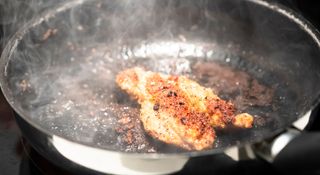
It’s not just fatty and fishy cooking smells that fill a kitchen with bad odors. Garbage, blocked drains, and grimy fridges can all add to the bad smell.
Whatever the issue, a well-ventilated kitchen will help air circulate and dispel outside, whether you open windows before you start cooking or switch on an extractor fan. Cooking smells can also be removed by boiling a cup of vinegar on the stove, as the vapors absorb odors.
Grease and remaining food particles will also congregate on all kitchen surfaces, so wipe them down once you’ve finished cooking to avoid lingering smells. Emptying the trash regularly and removing out-of-date food from the fridge will also help to reduce bad odors.
7. Be aware of dangerous smells
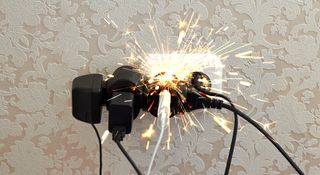
You must be alert if you smell something fishy, burning rubber, sulphur or rotten eggs. It could be a sign of an electrical wiring issue or a gas leak.
The National Fire Protection Association (NFPA) strongly recommends calling an electrician if you can smell a burning or rubbery smell coming from an electrical appliance. Other factors that will also indicate you might have a problem, such as flickering or dimming lights and sparks from an outlet. The NFPA has a useful range of electrical safety tip sheets available to download.
It’s worth being particularly vigilant over the holiday season when you might use additional extension cables for Christmas lights, electronic gadgets and toys.
If you can smell either sulfur or rotten eggs, it’s a strong indicator that you have a gas leak. New Hampshire Department of Energy says you should evacuate your home, close the door, move more than 300 ft away and call 911.
It also warns against using electrical switches, telephones, appliances or garage door openers that can all cause sparks. And it strongly advises against turning off your gas meter, as a qualified professional should do this.
Being on top of the odors in your home, will not only keep you safe but will ensure your home smells fresh, and when uninvited guests turn up, you'll never be embarrassed to invite them in.
More from Tom's Guide
- Discover How to clean a washing machine
- You might also need to know How to clean a dog bed
- And check out How to remove mold from a mattress

Camilla Sharman has worked in publishing and marketing for over 30 years and has covered a wide range of sectors within the business and consumer industries both as a feature, content, and freelance writer.
As a business journalist, Camilla has researched articles for many different sectors from the jewellery industry to finance and tech, charities, and the arts. Whatever she’s covered, she enjoys delving deep and learning the ins and out of different topics, then conveying her research within engaging content that informs the reader. In her spare time, when she’s not in her kitchen experimenting with a new recipe, you’ll find her keeping fit at the gym. In the pool, stretching at a yoga class, or on a spin bike, exercise is her escape time. She also loves the great outdoors and if she’s not pottering about in her garden, she’ll be jumping on her bike for a gentle cycle ride.

